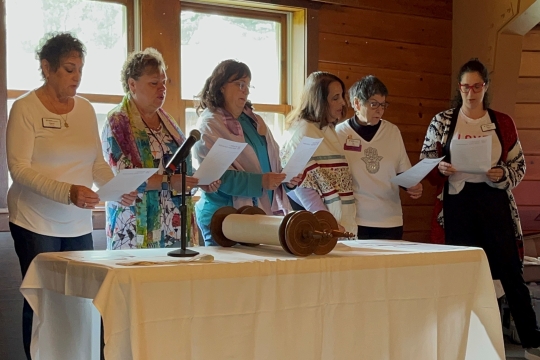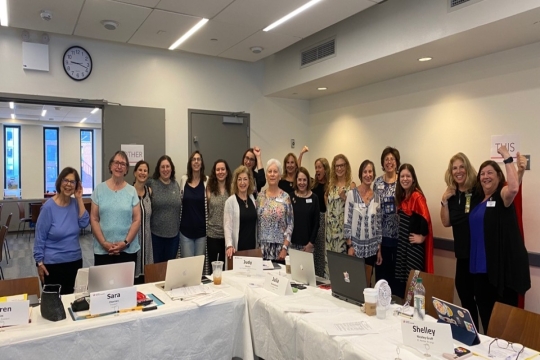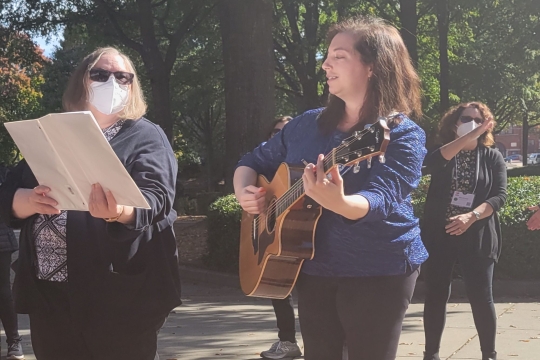As we consider the Jewish calendar, observance of Shabbat, Rosh Chodesh, and the festivals, laws governing roles and obligations have value and offer guidance. In Parashat Emor the specifics are defined regarding bread, how it is made and by whom, the sacred oil, treatment of sacrificial animals and animal young, prohibitions against blasphemy, the barriers that separate priests from daily life, and the management of death and burial, particularly by priests. Situations that affect or involve women seem to protect yet limit their participation.
We can learn from this parashah that what we hold in our minds and our hearts matters as we endeavor to find the truth and engage sacred acts while seeking the best in ourselves and others. When we are present in the moment, focusing, caring, and loving, we grow stronger and learn more effectively. As we pray communally, we become more aware of others because we use the same words together. We can see ourselves in the larger context of our lives, families, and communities. It’s not just about us. Our Sabbath and festivals celebrate G-d, human life, and the results of our labors.
Perhaps the more difficult and complicated parts of this parashah for us today are the statements that ostracize those with blemishes or impairments and forbid them from participation in the Tabernacle. Our Reform Movement is all about inclusion and respect for individuals no matter their physical, ethnic, financial, racial and other differences. In times past, and perhaps even now, differences can be obstacles and challenges. They can be misunderstood and become contributors to fear of the unknown. In our Movement today, we hope to embrace all community members and embrace our diversity.
Parashat Emor tells us many details about the obligations of the priests in biblical times. Today, our rabbis are out among the people speaking up for and seeking social justice and freedom -not hidden or separated by the walls of our tabernacles. They march, motivate and encourage, yet maintain the priestly connection to G-d. They are our role models and teachers. I am reminded that the rabbi of my youth, Abba Hillel Silver z’l was an ardent Zionist and signer of the Israeli Declaration of Independence as well as an incredible teacher. His awesomeness gave rise among my peers that if G-d had a persona, it might be Rabbi Silver. My congregational rabbi today, Mona Alfi, is an active, visible presence in Reform CA, the Commission on Social Action of the Religious Action Center, and is an often-sought-after voice and representative of our community on issues and concerns. Yet, is not difficult to recognize the challenges when my rabbi speaks out and frequently marches for important causes while remaining priestly and a role model.
So, this Shabbat, let us join together, not separately, in our families and communities as we welcome change, fight for inclusion, respect others, and hope for a better future.
May the lights of your Shabbat candles burn with kindness, love, and passion.
Lindie Henderson is a WRJ Chai Society member. She is a Past President of the WRJ Pacific District and a Board Member of Women of B’nai Israel in Sacramento, CA. Lindie also serves on the WUPJ North American Advisory Board.
Related Posts

Parashat Yom Rishon shel Rosh HaShanah

Cultivating a Culture of Accountability and Belonging

